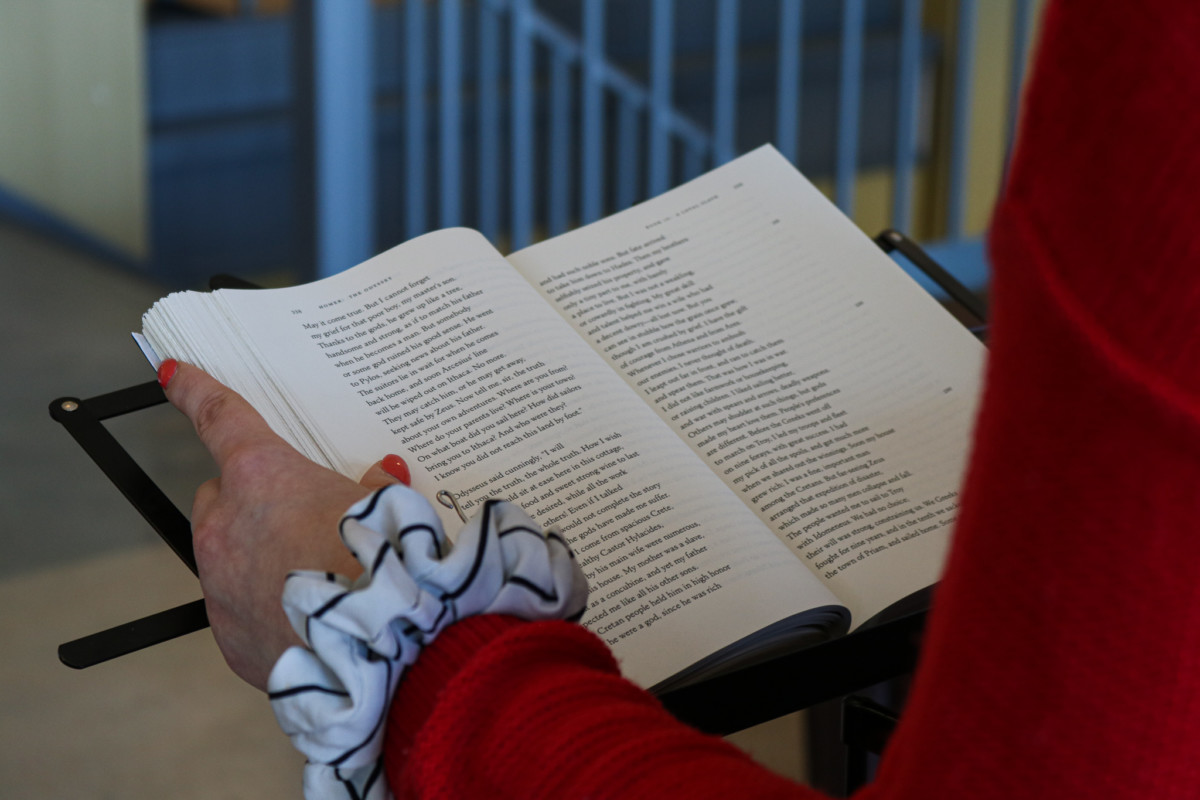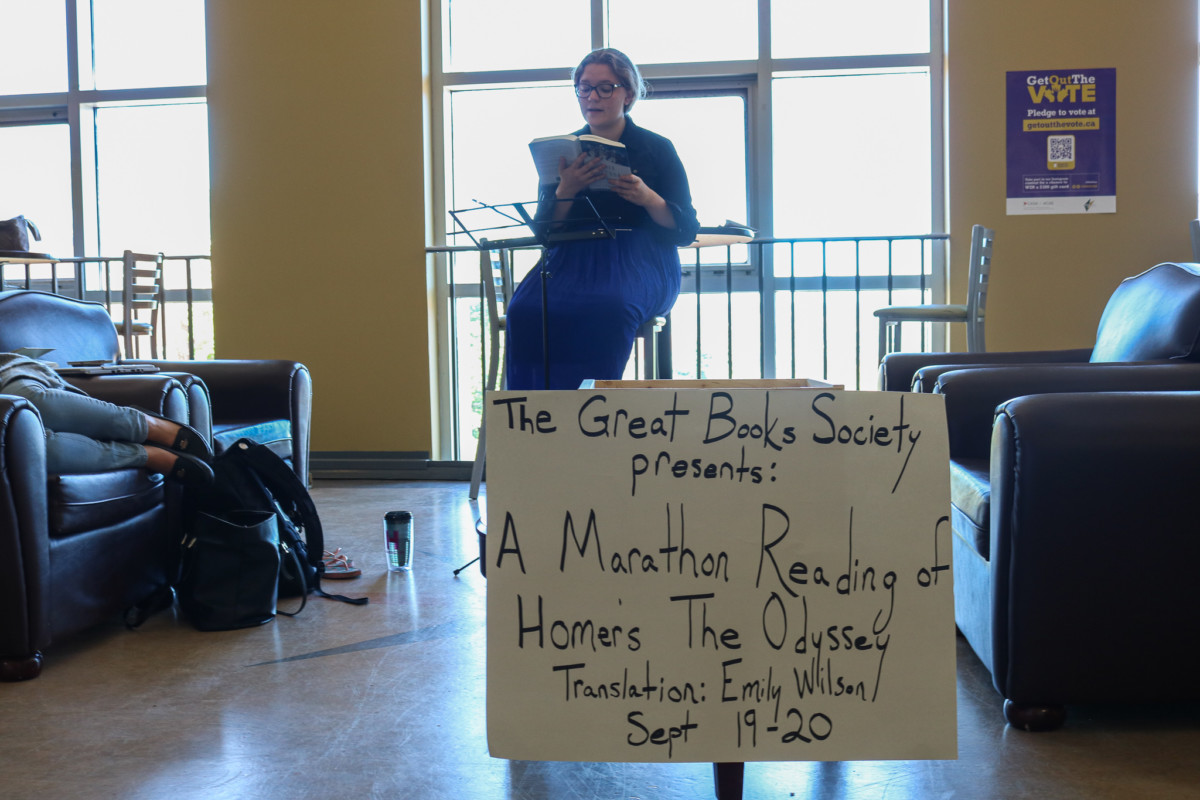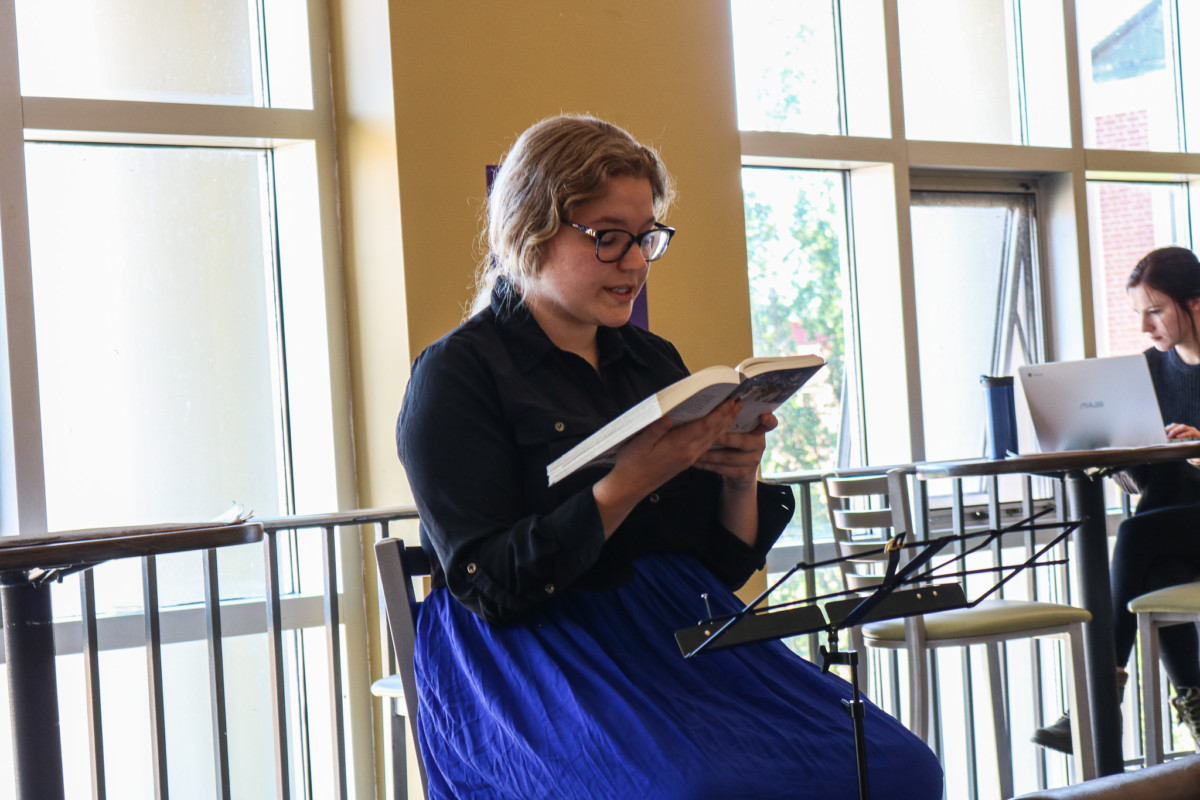
The first Great Books Society event of the year lasted 10 hours. It was a marathon reading of The Odyssey, an epic ancient Greek poem by Homer that’s been translated into English upwards of 60 times.
But this version of The Odyssey is different because it was translated by Emily Wilson – the first woman to ever translate the original Ancient Greek text.
28 students read parts of the epic poem out-loud in the Sept. 19 and 20 reading marathon, switching off every 15 to 30 minutes. Fourth-year St. Thomas University student Elizabeth Tuck and vice-president of the Great Books Society organized the event and read about an hours worth of the book out-loud.
She said it’s important to bring female voices, like Wilson’s, to light.
“The study of great books so often is a boy’s club,” said Tuck.
“So many of the great books, like [by] Homer, Aristotle, Shakespeare, so much of that amazing, literature is all written by men. And of course, that’s related to its historical context and we totally get that, but it also doesn’t change the fact that it’s still all very male dominated.”
Tuck said there’s low female representation among the books they read and the professors they’re taught by in Great Books courses at STU.
“That’s why it’s important to really see that women do have an important place in the study of great books.”

Tuck said every translation of the text is going to be different.
“There’s no direct translation from Greek to English, so a lot of these words is what the sentiment means in English. So that’s where a lot of that freedom comes for translators to kind of make those stylistic choices about what words they’re going to use in their text.”
Tuck said Wilson’s translation is different from previous ones because it’s more accessible for readers.
“The Odyssey is a big-ass book with hard things to understand even if you’re studying it. It might just baseline not be the most accessible text ever,” she said.
“[But] just [Wilson’s] wording kind of can make concepts clearer, perhaps to someone who’s looking to analyze it in that way.”
STU professor Matthew Dinan presented this idea to the Great Books society. Tuck said the second-year Great Books class is currently reading Wilson’s translation of The Odyssey, so it was a good time to host the event.
She said herself and others have critiqued the Great Books department in the past because there hasn’t been enough diversity and representation within the texts they read. But now, because they’ve chosen this female translation, Tuck feels the department is listening to students’ concerns.

“They could have just gone with the translation they used last year, which is fine. Like it’s a good translation. But they didn’t. And they made a point of going with this new translation.”
“And to me, even though I’m not reading it in class, like it wasn’t a move made for my class, it does say that they’re listening. And it says that they also really acknowledge the value of women, and the value that other diverse perspectives bring to the study.”
